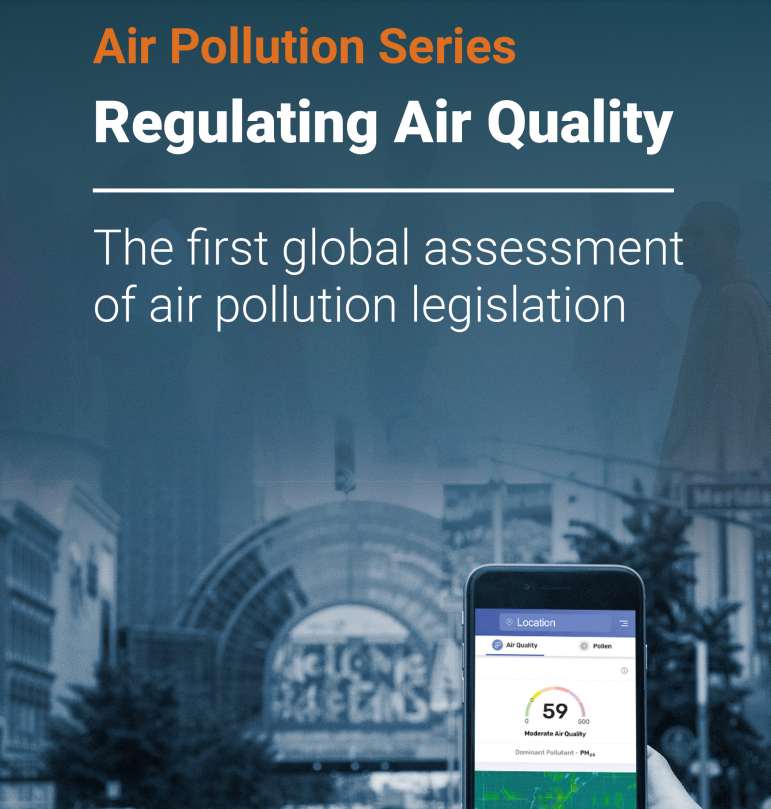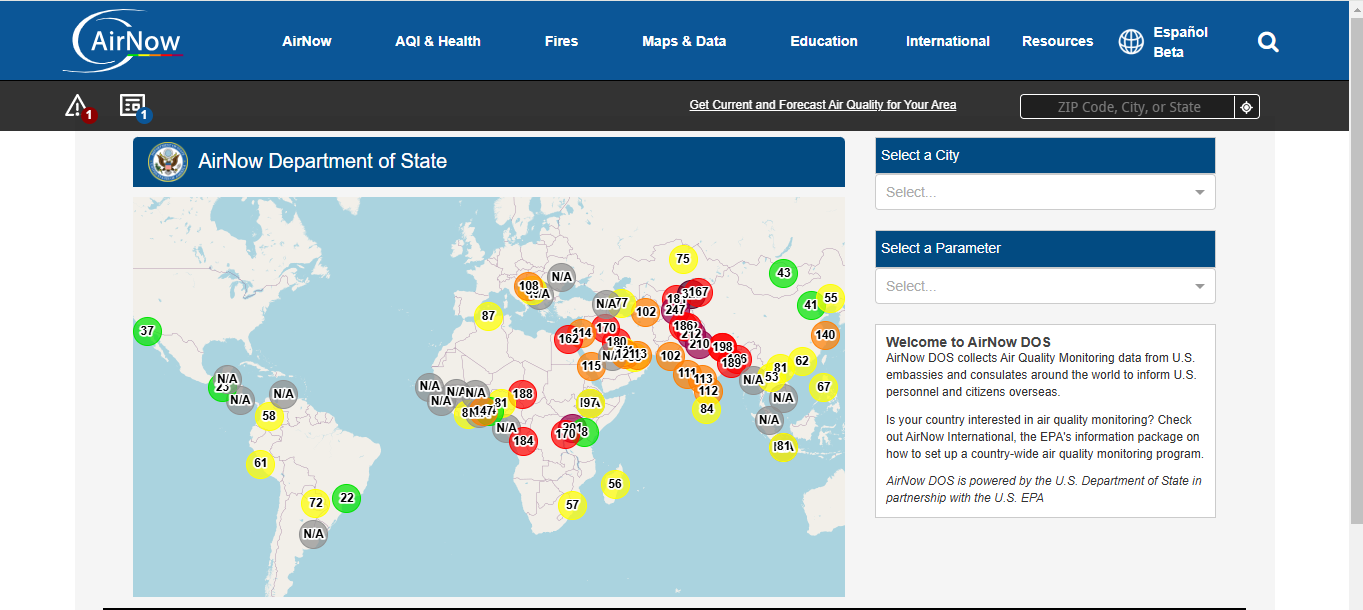This page has moved. If you are not redirected, click here.
Ambient Air Quality Standards in West Africa: The Current State (2025)
In the rapidly urbanizing region of West Africa, ambient air quality has become a pressing concern. With cities expanding and industrialization on the rise, the air we breathe is increasingly at risk. This blog post delves into the current state of ambient air quality standards across West African nations, highlighting both the challenges and ongoing efforts.
Global air quality standards
In the First Global Assessment of Air Pollution Legislation by the United Nations Environment Programme (UNEP) it is stated,
“While ambient air quality is monitored in many countries, this is not a legal requirement in at least 37 per cent of countries. In countries where monitoring is framed in legislation, important questions arise about the rigour of monitoring, as well as issues of capacity”

The global Ambient Air Quality Standards are needed for context before the assessment of air pollution in West Africa.
“The primary global guidance on air quality is scientific, as provided by the World Health Organization (WHO) air quality guideline values for ambient air quality. These guideline values are not intended to be binding upon States, but they reflect a high degree of scientific consensus, giving them global authority.” - UNEP
The Challenge of Air Pollution in West Africa
West Africa is grappling with significant air pollution, particularly in its urban centers. Factors contributing to poor air quality include:
- Rapid Urbanization: Cities like Lagos, Abidjan, and Accra are experiencing population booms, leading to increased vehicular emissions and industrial activities.
- Industrial Growth: The surge in manufacturing and mining sectors, particularly in countries like Nigeria and Ghana, has escalated pollution levels.
- Biomass and Waste Burning: The common practice of burning biomass for cooking and waste disposal adds to the particulate matter in the air.
- Saharan Dust: Seasonal dust from the Sahara Desert affects air quality across the region, contributing to higher PM levels.
Current State of Air Quality Standards
Air quality management in West Africa varies significantly by country, with each nation facing unique challenges in monitoring, regulation, and enforcement. Despite the presence of national standards for air pollutants, the practical implementation is often hindered by factors such as lack of resources, inadequate monitoring infrastructure, and weak policy enforcement. Below, we explore the air quality management approaches in several key West African countries:
Nigeria
Nigeria has taken steps towards managing air quality through the National Environmental Standards and Regulation Enforcement Agency (NESREA). They have set standards for pollutants like PM10, PM2.5, NO2, and SO2. However, enforcement remains inconsistent due to:
- Limited Monitoring: There’s a scarcity of air quality monitoring stations, making real-time data collection and enforcement challenging.
- Vehicle Emissions: Despite programs like the National Vehicular Emissions Control Programme, enforcement of vehicle emission standards is weak.
Ghana
Ghana’s Environmental Protection Agency (EPA) has established air quality guidelines, but:
- Data Scarcity: Continuous air quality monitoring is not widespread, with most data coming from short-term studies rather than ongoing surveillance.
- Resource Constraints: Implementation and enforcement of standards are hampered by limited resources.
Côte d’Ivoire and Senegal
Both countries have national air quality standards, but they face similar issues:
- Lack of Monitoring Infrastructure: There’s a critical need for more air quality monitoring stations to gather reliable data.
- Policy Implementation: The translation of policy into action is slow, with enforcement often lacking due to administrative and financial constraints.
Regional and International Efforts
- ECOWAS: The Economic Community of West African States is pushing for regional cooperation to tackle air pollution, aiming for harmonized standards and shared resources for monitoring.
- International Collaborations: Partnerships with organizations like the U.S. EPA have led to projects like the Greater Accra Metropolitan Area Air Quality Management Plan, providing frameworks that could be replicated regionally.
Health and Environmental Consequences
The health implications of poor air quality in West Africa are severe, with high incidences of respiratory diseases, cardiovascular issues, and premature deaths linked to air pollution. Environmentally, air pollution affects agriculture, visibility, and contributes to climate change.
Air quality data platforms
For real-time air quality data in West Africa an honorable mention is the AirNow website, via U.S. Embassies, offers a useful snapshot. This is one of the websites that has the data across multiple countries in one place for easy access.

Future Directions
- Increased Monitoring: There’s a need for more comprehensive air quality monitoring networks to provide real-time data for better policy decisions.
- Capacity Building: Strengthening the technical and administrative capacity of national environmental agencies is crucial.
- Public Awareness: Educating the public on the impacts of air pollution can lead to grassroots support for cleaner air policies.
- Policy Reform and Enforcement: Revising existing standards to be more stringent and ensuring they are enforced effectively.
Conclusion
While West Africa has made strides in setting ambient air quality standards, the journey towards cleaner air is far from over. The region faces unique challenges due to its socio-economic and environmental context, but with concerted efforts at national and regional levels, significant improvements can be made.
References
- A review on ambient and indoor air pollution status in Africa - ScienceDirect(https://www.sciencedirect.com/science/article/abs/pii/S1309104220303238)
- A Scoping Review on Air Quality Monitoring, Policy and Health in West African Cities - PMC
- EPA Collaboration with Sub-Saharan Africa - US EPA
- Air Quality and Health in West Africa - IntechOpen
- Ambient air pollution and health in Sub-Saharan Africa: Current evidence, perspectives and a call to action - ScienceDirect
- Air quality management strategies in Africa: A scoping review of the content, context, co-benefits and unintended consequences - ScienceDirect
- Regulating Air Quality: the First Global Assessment of Air Pollution Legislation -UNEP